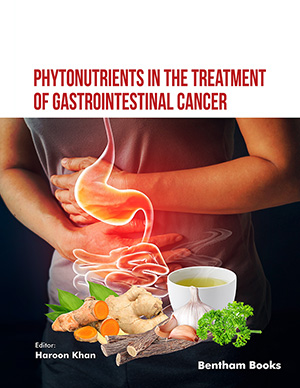Abstract
Gastrointestinal cancers are the most common cancer group, accounting for
approximately one-fourth of the total cancer incidence and one-third of cancer-related
deaths in developing countries. Treatments for the disease include surgery, radiation,
and administration of chemotherapy components, such as docetaxel, mitomycin, and
cisplatin injection. However, due to the side effects seen in these treatments and for the
purpose of supporting the treatment, the trend towards medicinal herbs and
phytonutrients, which have certain biological activities and potential benefits to human
health, including the prevention of diseases, has increased. Natural products and their
derivatives are consistently the most successful source of phytonutrients and
pharmaceutical leaders. Terpenoids are one of the most important families of natural
compounds known for their medicinal value. Terpenoids are found in higher plants,
algae, mosses, liverworts, and lichens, as well as insects, microbes or marine
organisms; and have been shown to exhibit anti-infective, anti-inflammatory, and
antitumoral properties. Recently, research activities on the preclinical and/or clinical
potential of this class of components in cancer have continuously risen. In this review,
the molecular basis of the antitumoral effect of terpenoids is presented, with special
emphasis on the latest developments in this field, comprising recently enlightened
findings of the potential of monoterpenoids, diterpenoids, triterpenoids and
tetraterpenoids as antitumoral agents. Furthermore, this review will summarize
promising terpenoid compounds in combination therapy with conventional
chemotherapeutic agents.
Keywords: Cancer, Gastric cancer, Phytonutrients, Pharmaceuticals, Molecular mechanisms, Terpenoids.






















